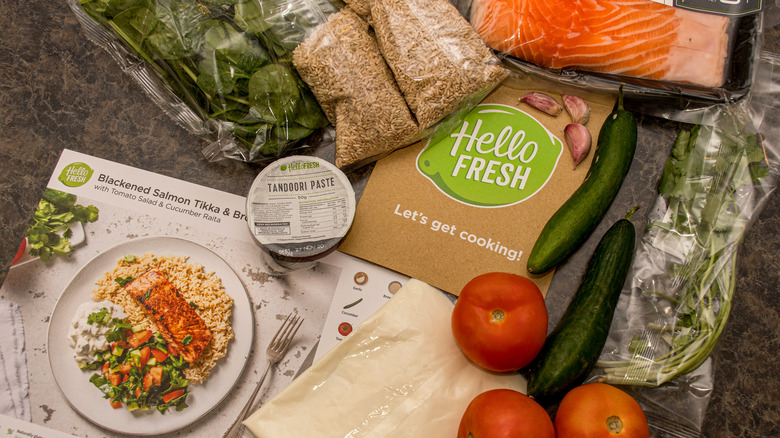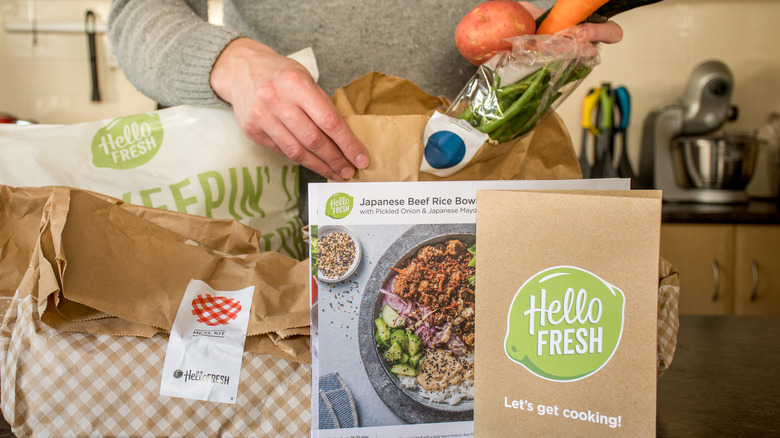Are Meal Kits Actually Good For The Environment?
Meal kit delivery services are rapidly growing in popularity, and it's easy to understand why. Cooking at home can be a chore, and grocery shopping for portions enough to feed one or two people is way more difficult than it should be (why do they only sell buns in sets of eight?). The industry for these meal kits is rapidly growing; "in 2017, the industry was valued at $4.65 billion U.S., representing 300% growth over the previous year. By 2022, the market is expected to more than double, reaching $11.6 billion" (per Statista). Especially during COVID, people are using these meal kits as a way to reduce their grocery shopping trips and get more creative at home. A lot of these services claim to be good for the environment, reducing food waste, emissions, and costs, but are those claims actually true?
If you've ever received a meal kit, you know that they come with a lot of trash and recycling. Everything is packaged individually, down to the herbs and sauces, plus there are the large boxes they're shipped in and the ice packs included to keep the foods cold during transit. So do they end up being better for the environment than other shopping and cooking alternatives?
Surprisingly, yes they are
Dr. Brenna Ellison is an associate professor in the College of Agricultural, Consumer and Environmental Sciences at the University of Illinois at Urbana-Champaign. In an interview with the USDA, Dr. Ellison stated that meal kits "can reduce food waste, particularly for food items that are infrequently used and unavailable in small quantities," and mentioned that "meal kit manufacturing facilities are lean operations — rates of waste are often in the low single digits."
While it's good that the food waste is reduced with these kits, what about the packaging? Dr. Ellison answered that "one study shows that the benefits of meal kits, including food waste reduction and lower greenhouse gas emissions, outweigh packaging waste concerns" (per Resources, Conservation and Recycling, posted on Science Direct). Furthermore, she stated that these operations are actively pursuing new ways to mitigate and reduce packaging waste, which is more than most standard food packaging companies can say. It looks as though they are actually better for the environment than traditional grocery shopping, so if you use a meal kit service, you can rest easy knowing it's doing some good.

